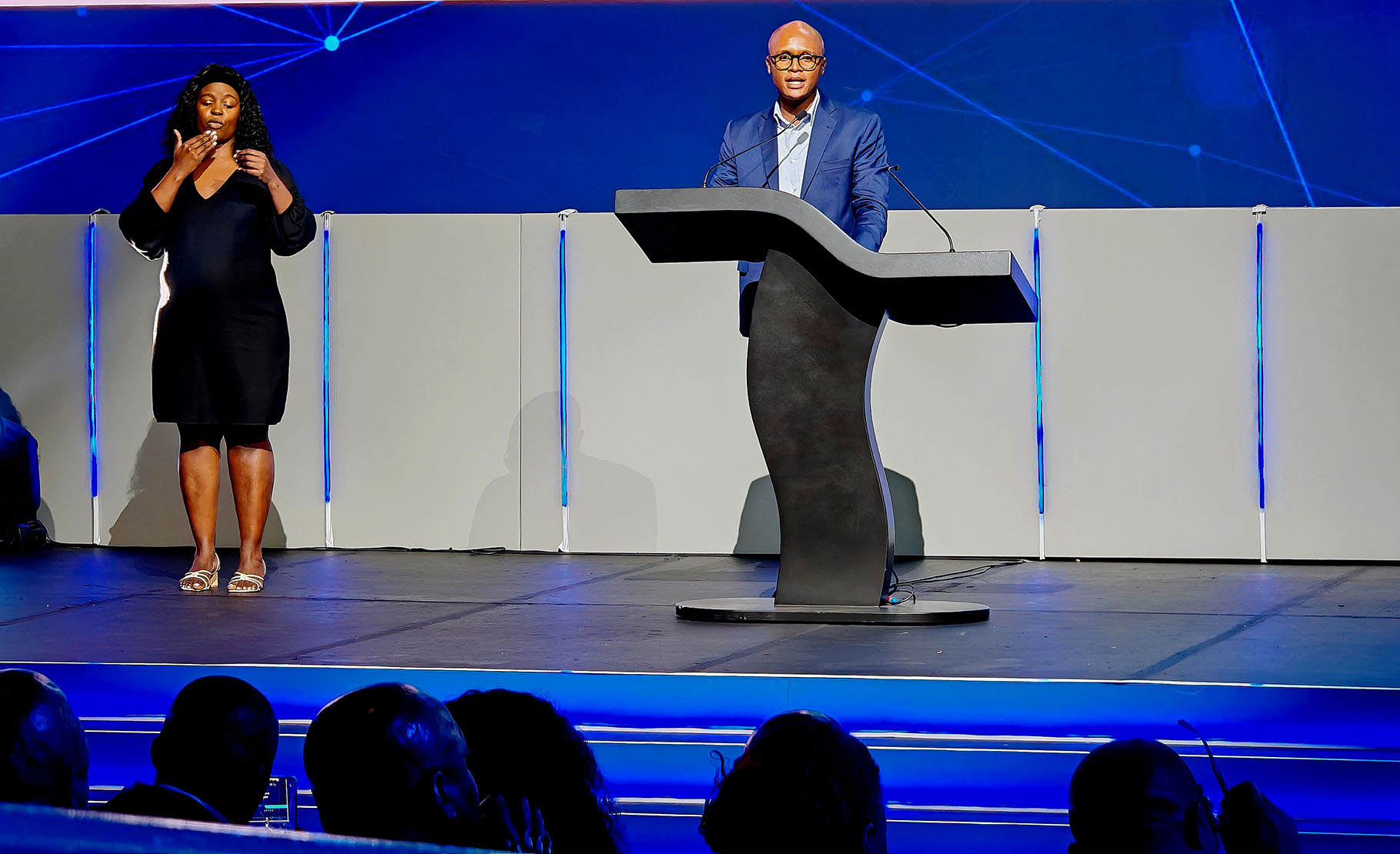South Africans don’t usually look to ICT policy for revelation. But at GovTech 2025 in Durban, Solly Malatsi preached like a reformist prophet. The Minister of Communications and Digital Technologies isn’t just conducting the state IT choir, he’s rewriting the gospel of government technology, one policy at a time.
His sermon has three verses: competition, efficiency and trust. At its centre is a vision aligned with Sita’s goals: “One data, one citizen, one service delivery journey.” It’s the theme of GovTech 2025 and the salvation chorus for a state trying to digitise itself out of dysfunction.
Read more: State’s mismanaged IT provider is ‘a disgrace’, Parliament is told
Can Sita be saved?
No congregation at GovTech needed reminding of Sita’s sins. Established in 1999 to centralise ICT procurement, the State IT Agency soon became synonymous with inflated tenders, corruption scandals and the dreaded “system offline” sign at Home Affairs. Police procurement was delayed by years. Service delivery collapsed under its watch. And let’s not even mention the cybersecurity situation.
Malatsi doesn’t deny the failures. “The ultimate approach is to ensure that Sita delivers to the satisfaction of its clients. That’s what will make Sita a success,” he told Daily Maverick in a short interview at the conference.
Read more: Parliament summons Malatsi over controversial B-BBEE policy direction
He points to an interim board that has stabilised governance, but admits the agency has long tested the patience of its clients.
That’s why he has pulled the plug on its monopoly. A regulation gazetted in May allows government departments to bypass Sita and contract directly with private providers, if they can show it will be cheaper and faster. Sita now has 10 working days to prove it can deliver or risk losing the business.
It’s a competitive cold shower. “Thriving economies succeed because of competition. It’s quality of service that matters more than procurement,” Malatsi said.
The agency’s new role is no longer that of a gatekeeper but a competitor. If it can sharpen up, it might still play a central role in the government’s digital transformation. If not, departments will go elsewhere.
Icasa and the Starlink parable
If Sita reform is about fixing how the state buys technology, Malatsi’s hilltop message is about how South Africans consume it. His policy directive to the Independent Communications Authority of South Africa (Icasa), curiously also gazetted in May, will allow multinational firms to use Equity Equivalent Investment Programmes (EEIPs) instead of the rigid 30% black ownership requirement for telecoms licences.
Many detractors have referred to this policy as the “Starlink amendment”, since the satellite internet company has, quite publicly through the social media rants of its owner, been unable and unwilling to comply with Icasa’s ownership rules. Malatsi denies tailoring regulation to a single company.
Read more: Malatsi clarifies B-BBEE. You don’t have to sell shares, but you do have to buy in.
For Malatsi, it’s about removing blockages. “We don’t have to choose between investment and empowerment. We can do both,” he said. EEIPs would let firms plough money into training, infrastructure or SMME support rather than local shareholding – broader transformation, in his view, with faster investment outcomes.
He doesn’t like the hint of the Icasa recommendation being tied to the Sita bypass and a broader liberalisation: “There’s always going to be conspiratorial conclusions in interpreting policy instead of looking at what is the issue trying to be addressed,” he explained.
Malatsi also insists Icasa remains independent. The directive says the regulator “may consider” amending its rules, not that it must.
“Ultimately, Icasa is the final arbiter.”
Lindsey’s take
If you risk Malatsi’s temper and put the two May proclamations together, these moves look less like isolated reforms and more like a single doctrine. Break state monopolies, free departments from dysfunctional SOEs, lower barriers for investment and let competition drive costs down.
It is, unmistakably, the Democratic Alliance’s market-oriented gospel. Malatsi won’t frame it that way, preferring to say his focus is on “maximising resources” and “aligning policy where it isn’t aligned”. But the fingerprints of DA liberal ideology are everywhere: Sita as a competitor, not a monopoly; empowerment through investment, not only ownership.
Down the righteous path
Malatsi’s preaching is clear. The destination is a smart government where a young person can access learning material without data costs, an entrepreneur can deal with the state without a queue, and citizens can finally trust digital government.
But that prescribed path ahead is fraught with perils of high data prices, device affordability, fragmented systems, non-interoperable databases, and an agency with a history of failure trying to build a super app (more on that tomorrow).
Still, Malatsi insists the future is not distant. “A smart government is not a dream of the future. It is a necessity of the present,” he declared in his keynote.
Whether Solly Malatsi’s wisdom is enough to deliver on that promise is another matter, and South Africa’s digital fate depends on whether his reforms become scripture or footnotes. DM




 Minister of Communications and Digital Technologies, Solly Malatsi, delivered a straightforward keynote from the GovTech stage - which was interesting since he allowed government departments to bypass the State Information Technology Agency a couple of months ago. (Photo: Lindsey Schutters)
Minister of Communications and Digital Technologies, Solly Malatsi, delivered a straightforward keynote from the GovTech stage - which was interesting since he allowed government departments to bypass the State Information Technology Agency a couple of months ago. (Photo: Lindsey Schutters)